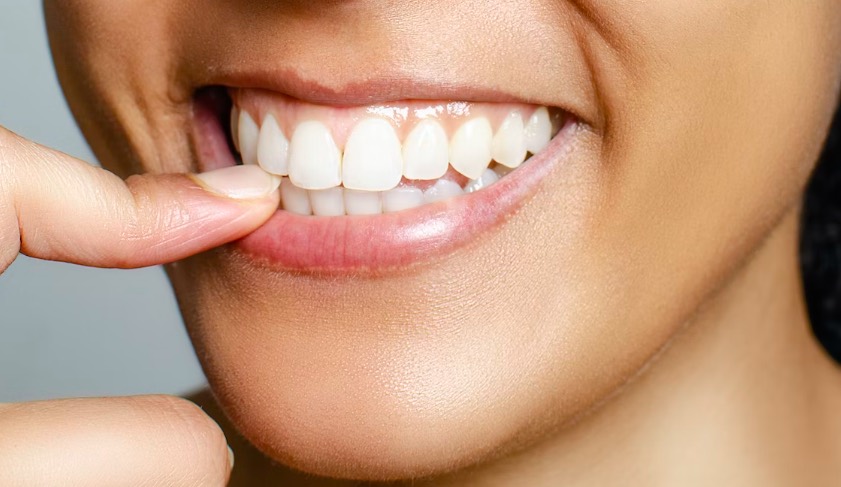Dental Veneers: Advantages and Disadvantages
Before making a decision on whether or not to go ahead and get dental veneers it is important to have an understanding of the pros and cons behind them. Doing so will help you make an informed decision on whether veneers are the best option for you.
It is important to note that the information provided in this guide is simply introductory. For specific advice on your situation you should always speak to your dentist. Speaking with your dentist will help you clarify any unanswered questions that you may have.
The Advantages of Dental Veneers
Getting dental Veneers come with many advantages. They have been and remain a popular option for many people. Here are some reasons why this is the case:
They provide a natural tooth appearance:
Dental veneers are very effective in producing good results when it comes to improving the appearance of teeth. Using dental cement and being able to tailor the veneer to the best colour and size for your teeth means that you can achieve the results that you want to achieve.
Importantly, dental veneers sort the problem out in a discrete way. They look very natural and as a result it is not obvious to other people that someone has had dental veneers fitted. For many, this is very important as this is often the reason that many people chose to get dental veneers fitted in the first place.
Dental Veneers do not hurt your gums
Your gums can tolerate dental veneers very well. This is very important as having uncomfortable gums can make performing everyday tasks such as eating and drinking very difficult.
Being able to benefit from the comfort the veneers provide make them an enticing option for so many people.
Dental Veneers are protected against teeth staining
The chemicals used when dental veneers are made mean that they don’t stain. This is very important as people who chose to get dental veneers often do so because they want to improve the colour of their teeth.
The fact that dental veneers do not stain easily mean that they are an effective long lasting solution to improving the appearance of teeth.
Porcelain veneers are the best option when it comes protecting again stains.
In order to ensure that dental veneers do not stain you should limit yourself on the amount of staining food and drink that you consume. Food and drink such as coffee and red wine should only be consumed in moderation.
The teeth whitening properties of veneers
Dental Veneers can help give the impression of whitened teeth. The exact colour you want can be tailor made when the veneer is being made in the lab and then the colour can be adjusted once the dental veneers are being fitted, using dental cement. Together, these options can help whiten darker teeth.
Dental Veneers are easy to fit
People are often worried about the painful procedures involved in alternatives to having veneers as solutions such as dental veneers can be very painful options.
Veneers also don’t require the extensive shaping that other options such as crowns require. This means that less time needs to be spent in the dentist. This is a massive advantage for many people who do not have a lot of free time.
Veneers offer an effective aesthetic alternative to crowns.
The Disadvantages of Dental Veneers
Although dental veneers come with many advantages there are also some reasons that may mean that dental veneers are not the best option for everyone. It is important to weigh up the disadvantages of dental veneers against the advantages before choosing to go ahead and get them fitted.
Veneers are a permanent choice
Veneers are not reversible – you can’t undo veneers after you have them fitted. This is why it is essential that you are 100% sure you want to go ahead with veneers before you get them fitted.
Veneers are expensive options
As getting veneers fitted is a cosmetic procedure the NHS does not provide funding for treatment. As a result, there is no choice other then going privately for getting dental veneers fitted. Dental veneers can cost between £300 and £1500 per tooth depending on your needs and the level of experience of the dental practice that you use.
Veneers are not repairable should they chip or crack.
If your dental veneers chip or crack then there is no way of repairing them. You will have to pay for new veneers to be fitted if you want to fix a chipped or broken veneer.
To reduce the chance of your veneer breaking you should take extra care. Certain people have habits such as chewing pencils that cause veneers to break quicker. These should be avoided in order to increase the time that your veneers last.
Veneers can lead to increased sensitivity
A bit of enamel is removed from the tooth before veneers are fitted. This is to make it easier to fit the veneer to the tooth. However, this may mean that eating cold or hot foods may cause some discomfort.
Veneers may not be an option for everyone
Dental veneers may not be an option for everyone. Some people with weak gums or teeth may struggle dealing with veneers. Your dentist will be able to advise you on whether your teeth are strong enough for dental veneers.

